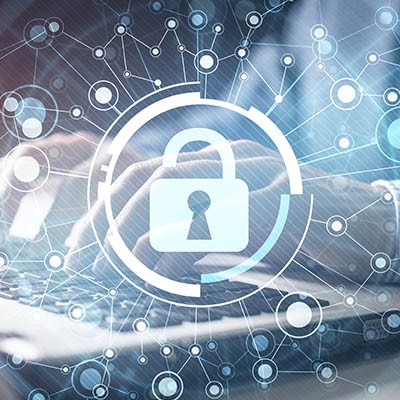Directive Blogs
Taking a Look at the Future of Cybersecurity
How concerned are you with your business' cybersecurity? When you envision your business in the future, do you see yourself constantly fighting cyberattacks, or paying ransom? Hopefully not, but what if cybersecurity turns into one of the most difficult parts to maintaining a steady business? Today, we will look into the future and hypothesize what your business may need to do to defend against cybercriminals.
Modern times have gifted us with methods to defending ourselves from cyberattacks. There are solutions available to keep your business safe, and projections show that certain technologies will emerge that will much more effectively protect your business.
Artificial Intelligence - Business’ Best Friend
One of the most effective ways in combating cyberthreats is introducing artificial intelligence where applicable. One of the weakest links in any business chain, are the employees. Now we aren’t recommending dismissing all of your employees and hiring robots as replacements, but by default humans are prone to making mistakes.
Whether an employee turns spiteful after not receiving a promotion, or a careless one clicks the wrong link, humans make mistakes that AI simply would not. Today’s security solutions need constant monitoring to ensure that they are operating as they should.
In the near future, your business can integrate AI into your security processes. This can resolve some of the common issues. Say Carl skips work, and does not reassign someone to monitor business security systems. While some employees like Carl will play hooky from time to time, AI is able to monitor systems 24/7, once they are taught what to keep an eye out for and recognize. They also are able to monitor these systems much more effectively than any human could, including Carl.
AI can even go beyond defense, and delve deeper into prevention.
As the world of artificial intelligence continues to be explored, new technology begins being implemented in business practices. AI may replace traditional access management processes, replacing passwords entirely. The idea is rather than trusting your employees are using strong password practices for every account, AI will be able to monitor the user’s behaviors, workplace roles, and common actions. If the system recognized any deviations, an additional form of authentication such as biometrics would grant or deny access.
Like the flat screen TV’s early days, this level of technology has one major obstacle - cost. However, as this technology is adopted and explored, the cost may become more feasible for small to medium sized businesses.
Why 5G Connectivity Needs to Remain on Your Mind
Artificial intelligence promises to advance a wide variety of processes. The use of 5G and data-intensive tasks are amongst them.
With every new device that is connected to the internet, an additional opportunity arises for a cybercriminal to take advantage of poor security standards. The capabilities that 5G connections have need to be heavily considered. Think about this: you’re riding down the highway when suddenly your self-driving car loses all connection due to a cyberattack. Considering that on a daily basis, your self-driving vehicle will equal roughly 3,000 times your daily data output, data overload is a serious security concern.
While there’s still time before these concerns materialize, there are plenty of present-day cybersecurity concerns that your business needs to anticipate. Directive has the experts you need to protect your data. Give us a call at 607.433.2200 today!


